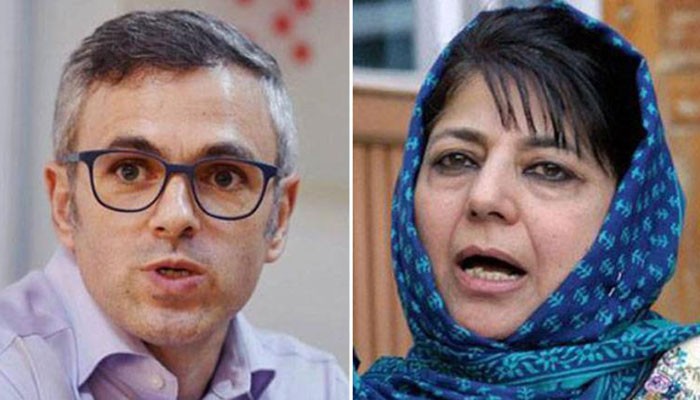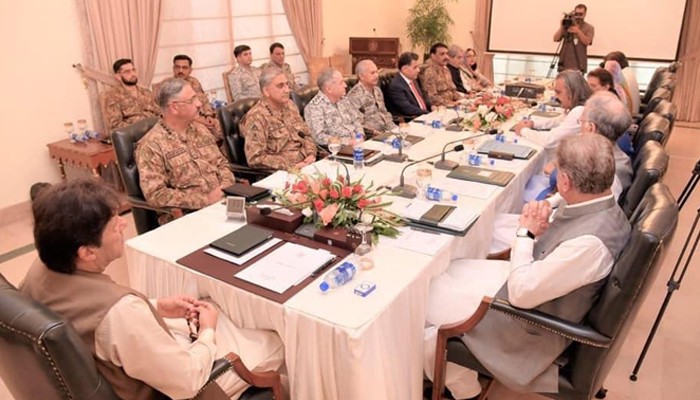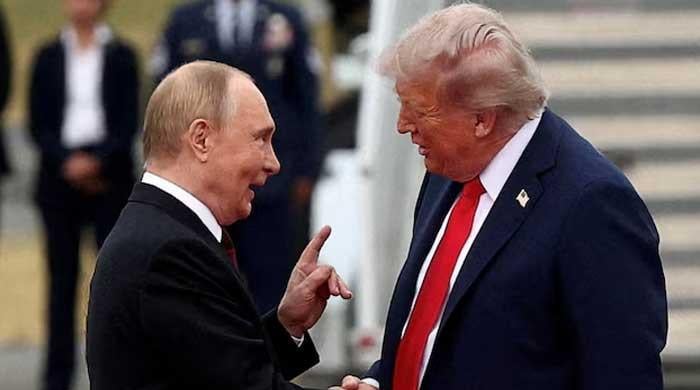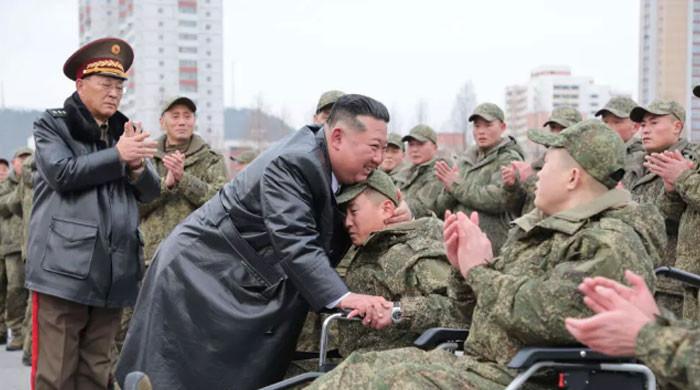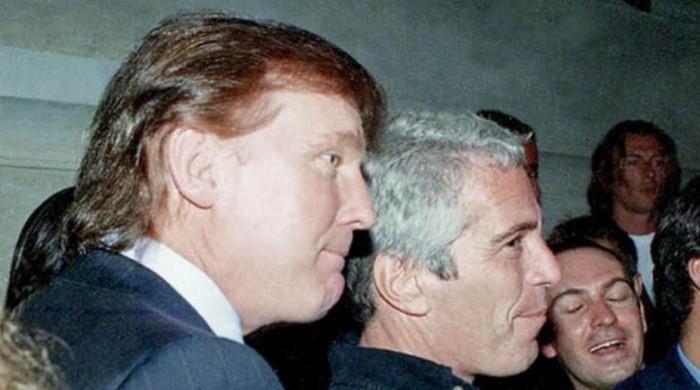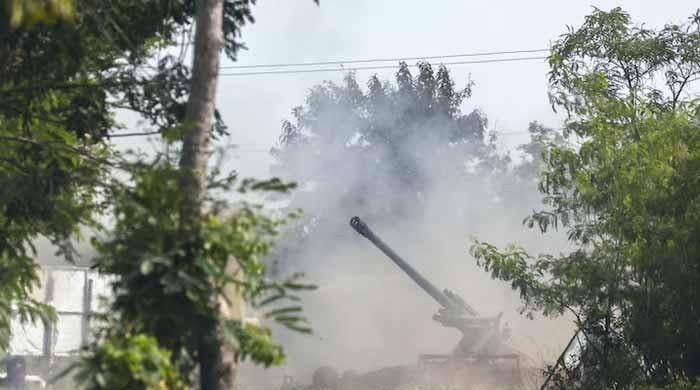India abolishes special status of occupied Kashmir
Indian govt decides to revoke special status granted to occupied Kashmir, as tensions mount in the valley
August 05, 2019
The Indian government on Monday rushed through a presidential decree to abolish Article 370 of the Constitution which grants special status to Indian occupied Kashmir, as tensions mounted in the disputed valley with unprecedented numbers of Indian troops deployed in the region.
Indian Home Minister Amit Shah introduced a resolution to scrap Article 370 in Rajya Sabha earlier today, which would revoke the special status granted to occupied Kashmir and make the state a Union Territory with the legislature.
The occupied valley would be bifurcated into two Union territories – Jammu and Kashmir, which will have a legislature, and Ladakh, which will be without a legislature, he said, amid uproar from the opposition in the Upper House.
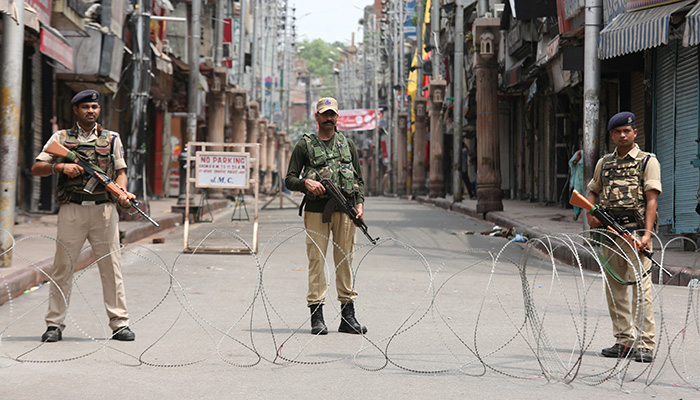
A spate of developments in Indian-occupied Kashmir during the past 10 days have triggered fear and panic among residents and leaders, with New Delhi confirming it had deployed at least 10,000 troops in the region. A further 70,000 have been deployed since, according to AFP.
What are Articles 370 and 35A?
Article 370 of the Indian Constitution is a 'temporary provision' which grants special autonomous status to occupied Kashmir. All the provisions of the Constitution which are applicable to other states are not applicable to occupied Kashmir.
According to this article, except for defence, foreign affairs, finance and communications, the Indian Parliament needs the state government's concurrence for applying all other laws. The residents of occupied Kashmir, therefore, live under a separate set of laws as compared to Indian citizens elsewhere in the country, including those related to citizenship, ownership of property, and fundamental rights.
Article 35A which stems from Article 370 was introduced through a Presidential Order in 1954. This article empowers the legislature of occupied Kashmir to define the state’s permanent residents and their special rights and privileges.
Under Article 35A, Indian citizens from other states cannot purchase land or property in occupied Kashmir.
'Illegal move will destroy regional peace'
Prime Minister Imran Khan termed India’s move to revoke Article 370 illegal and one which would destroy regional peace and security.
The prime minister made this statement while speaking with his Malaysian counterpart Mahathir bin Mohamad on the situation in occupied Kashmir.
During their conversation, Prime Minister Imran Khan termed changing the status of occupied Kashmir as a violation of United Nations resolutions.
“India's move will further deteriorate relations between nuclear-capable neighbours,” Prime Minister Imran Khan was quoted as telling the Malaysian prime minister.
Prime Minister Mohamad said Malaysia was closely evaluating the situation in occupied Kashmir and would remain in contact with Pakistan.
'Threat of genocide'
Pakistan’s Foreign Minister Shah Mehmood said there was a threat of genocide and ethnic cleansing in occupied Kashmir after India revoked Article 370.
Qureshi said Pakistan would request and appeal to the United Nations, OIC, friendly countries and human rights organisations not to remain silent on this issue.
According to Qureshi, the situation in occupied Kashmir was more serious than before. “We will consult our legal experts and I believe the freedom movement in Kashmir will gain momentum,” he added.
Pakistan summons joint parliamentary session
President Dr Arif Alvi summoned a joint session of the Parliament on Tuesday.
The joint sitting, to be held at 11am tomorrow, will review the tense situation in Indian-occupied Kashmir and along the Line of Control after the Modi government confirmed it had deployed at least 10,000 troops in the disputed region last week. A further 70,000 troops have been deployed since, according to unofficial reports, as panic grips the residents.
'Temple of democracy has been deceived'
Former chief minister of Indian occupied Kashmir, Mehbooba Mufti condemned the proposed revocation of Article 370 of the Indian Constitution in a series of tweets.
"People like us who placed faith in Parliament, the temple of democracy have been deceived. Those elements in J&K who rejected the [Indian] constitution & sought resolution under the UN have been vindicated. This will exacerbate the alienation Kashmiris feel," she wrote.
"What did J&K get for acceding to India? Another partition along communal lines? Our special status isn’t a gift bestowed upon us. It's a right guaranteed by the same parliament. A contract entered into by J&K leadership & India. Today the very same contract has been violated," the former minister said in another tweet.
'Long and tough battle lies ahead'
Former Chief Minister of India occupied Kashmir Omar Abdullah termed the unilateral move by the Indian government to revoke Articles 370 and 35A as a total betrayal of the trust that the Kashmiri people had reposed in India when the state acceded to it in 1947.
“The decisions will have far-reaching and dangerous consequences,” Abdullah said in a statement.
He added that the unilateral, illegal and unconstitutional decisions will be challenged by the National Conference. “A long and tough battle lies ahead. We are ready for that.”
Communications cut, leaders under house arrest
Indian authorities have meanwhile placed large parts of the disputed region under lockdown. Communications were cut, with private mobile networks, internet services and telephone landlines blocked.
Before the network disruptions, senior former and current Kashmiri political leaders tweeted that they had been put under house arrest. Former chief ministers Omar Abdullah and Mehbooba Mufti were among the leaders placed under house arrest late Sunday night as curfew-like restrictions were imposed in the region.
"As per the order, there shall be no movement of public and all educational institutions shall also remain closed," the state government ordered for Srinagar and surrounding areas in a statement obtained by AFP.
"There will be a complete bar on holding any kind of public meetings or rallies during the period of operation of this order."
UN appeals to India, Pakistan for restraint
The United Nations has appealed to India and Pakistan to exercise "maximum restraint" amid escalating tensions between the two countries along the Line of Control (LoC) in the disputed Kashmir region.
"The UN Military Observer Group in India and Pakistan observed and reported an increase in military activity at the Line of Control in recent days," UN Secretary-General's spokesperson Stephane Dujarric said in a statement e-mailed to APP UN correspondent in response to a question.
"The United Nations appeals to both sides to exercise maximum restraint to ensure that the situation does not further deteriorate," the statement added.
Pakistan to effectively respond to any Indian aggression: PM Imran
Pakistan will effectively respond to any type of aggression or provocation from India with its people's support, Prime Minister Imran Khan said on Sunday after a meeting of the National Security Council.
A strategy to effectively respond to provocation by India was readied during the NSC meeting, a notification said, as the security situation of the country was assessed.
A briefing on the situation in occupied Kashmir was given during the NSC meeting, which was attended by the chairperson of the Joint Chiefs of Staff Committee (JCSC), the heads of all three armed forces, intelligence officials, federal ministers of defence, foreign affairs, and interior, and the directors-general of the Inter-Services Public Relations (ISPR) and the Inter-Services Intelligence (ISI).
